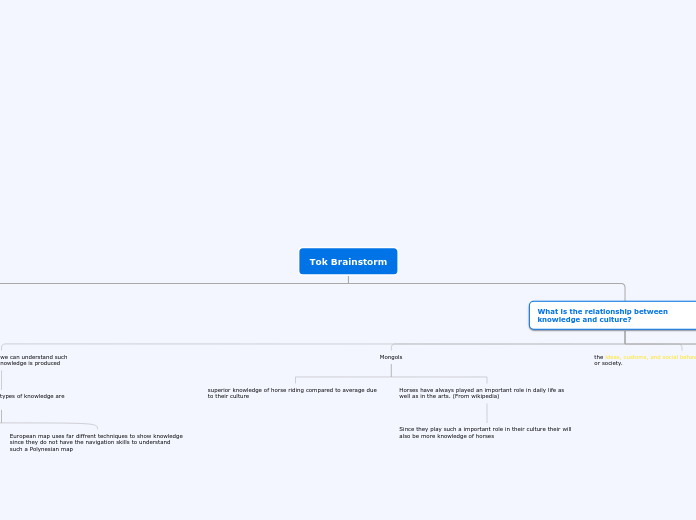a Tim Visser 4 éve
291
Tok Brainstorm

a Tim Visser 4 éve
291

Még több ilyen
Before the introduction of horses, bison were herded into large chutes made of rocks and willow branches and trapped in a corral called a buffalo pound and then slaughtered or stampeded over cliffs, called buffalo jumps. Both pound and jump archaeological sites are found in several places in the U.S. and Canada. In the case of a jump, large groups of people would herd the bison for several miles, forcing them into a stampede that drove the herd over a cliff. (From wikipedia)
Use of habitat regulation
Since they play such a important role in their culture their will also be more knowledge of horses
European map uses far diffrent techniques to show knowledge since they do not have the navigation skills to understand such a Polynesian map
Polynesian map (Far diffrent culture and tools accessible to this culture)